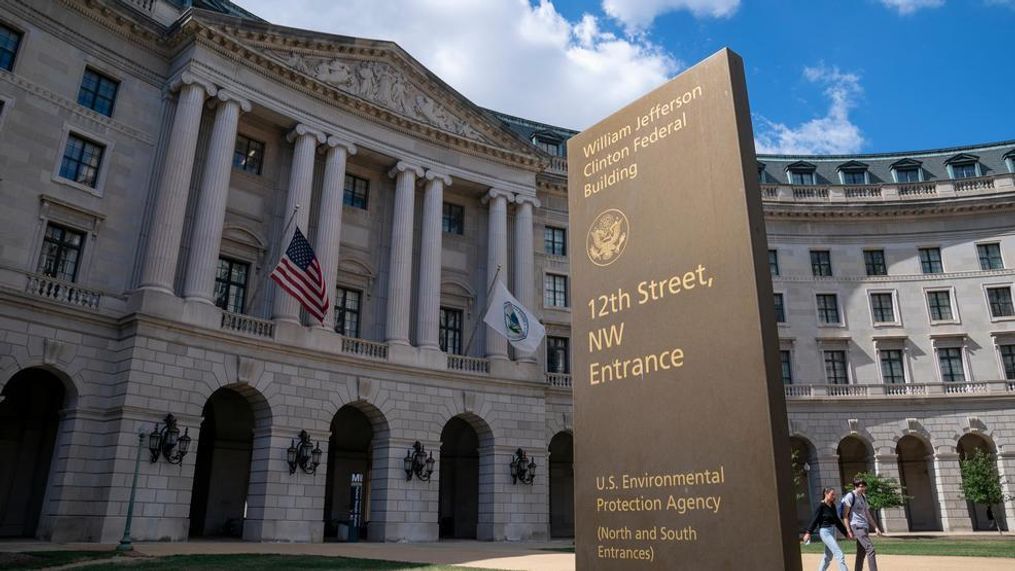California looks for ways to preserve environmental clout

SACRAMENTO, Calif. (AP) — The Trump administration's decision to stop California from setting its own emission standards for cars and trucks would undermine the state's ability to convince the world's largest automakers that they should make more environmentally friendly vehicles.
"We will not let political agendas in a single state be forced upon the other 49," Transportation Secretary Elaine Chao said Thursday at a Washington news conference after the administration revoked the power California exercised for decades under a waiver from the federal Clean Air Act.
One California lawmaker is already working on a way to preserve at least some of the state's environmental muscle: rebates for electric cars.
California residents who buy or lease a zero-emission vehicle can get up to $7,000 from the state. A bill by Democratic Assemblyman Phil Ting would mean people could only get that money if they buy a car from a company that has agreed to follow California's emission standards.
California has 35 million registered vehicles, giving it great influence with the auto industry. That was evident in July, when Democratic Gov. Gavin Newsom announced that Ford, BMW, Honda and Volkswagen had agreed to follow California's standards, bypassing the administration, which had been working on new rules.
California officials have been negotiating with other automakers to follow suit. But those talks stalled Wednesday when President Donald Trump announced, via Twitter, that he was revoking California's authority to set its own emission standards.
Ting's proposal, first reported by CalMatters, shows California has other ways it could entice automakers to follow its environmental lead. David Vogel, a professor emeritus of business ethics at the Haas School of Business of the University of California-Berkeley, noted California could accomplish its goals through various tax changes, which the federal government could not stop.
"Even if the Trump administration would win on this, California could use taxes to accomplish much of the same goals," Vogel said. "The federal government would have less of an ability to challenge, because states can pretty much tax who they want."
The California Legislature adjourned for the year last week. But before leaving, lawmakers amended a bill to include the new language so they could debate it when they return to work in January.
State officials could use the tactic to aid negotiations with Toyota and General Motors, two manufacturers that make electric cars but have so far not agreed to California's emission standards. It's unclear how effective the law would be, given that California's Clean Vehicle Rebate Project has a waiting list.
A Toyota spokesman declined to comment.
Ting, through a spokeswoman, declined immediate comment. Newsom, asked about the proposal, said he would make an announcement by Friday. He did not elaborate.
Trump said his move would result in less expensive, safer cars. He predicted Americans would purchase more new cars, which would result in cleaner air as older models are taken off the roads.
"Many more cars will be produced under the new and uniform standard, meaning significantly more JOBS, JOBS, JOBS! Automakers should seize this opportunity because without this alternative to California, you will be out of business," Trump tweeted.
Environmental Protection Agency chief Andrew Wheeler said at the Thursday news conference with Chao that Trump's approach was "good for public safety, good for the economy and good for the environment."
Wheeler also played down electric vehicles, calling them "a product that has minimal impact on the environment and which most families cannot approach"
U.S. automakers contend that without year-over-year increases in fuel efficiency that align with global market realities, their vehicles could be less competitive, potentially resulting in job losses. But most of the industry favors increases in standards that are less than the Obama-era requirements, saying their consumers are gravitating to SUVs and trucks rather than buying more efficient cars.
Top California officials and environmental groups pledged legal action to stop the Trump rollback. The U.S. transportation sector is the nation's biggest single source of greenhouse gasses.
Trump's claim that his proposal would result in a cleaner environment is contrary to his own administration's estimate that by freezing economy standards, U.S. fuel consumption would increase by about 500,000 barrels per day, a 2% to 3% increase. Environmental groups predict even more fuel consumed, resulting in higher pollution.
The administration argues that lower-cost vehicles would allow more people to buy new ones that are safer, cutting roadway deaths by 12,700 lives through the 2029 model year.
But The Associated Press reported last year that internal EPA emails show senior career officials privately questioned the administration's calculations, saying the proposed freeze would actually modestly increase highway fatalities, by about 17 deaths annually.
___
Biesecker reported from Washington. Ashraf Khalil in Washington contributed to this report.
